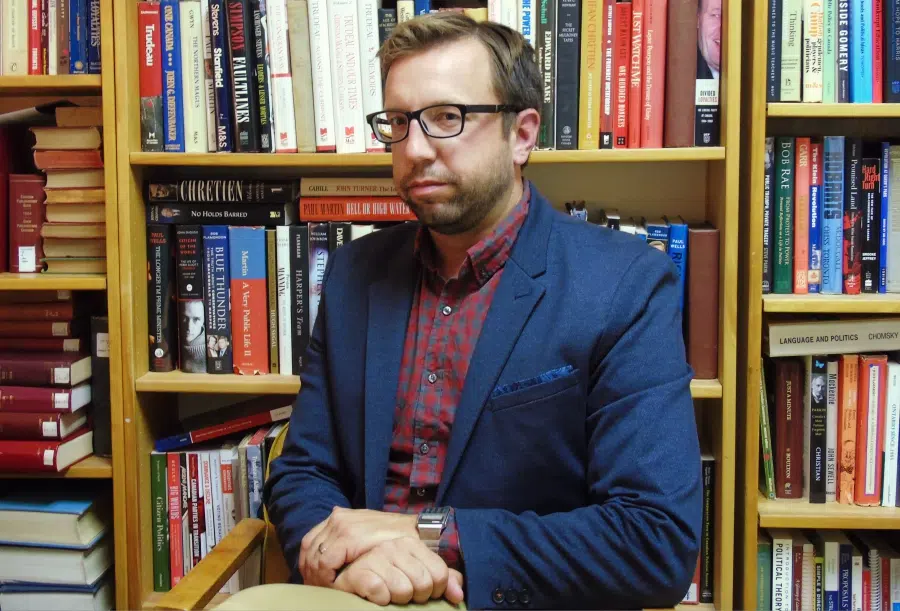
J.P. Lewis is an associate professor of political science at the University of New Brunswick in Saint John. (Image submitted)
Politicians were seemingly caught off guard by the intensity of opposition to controversial health-care reforms, according to a political science professor.
Six New Brunswick communities would have seen their emergency rooms close between midnight and 8 a.m. starting March 11.
But after days of backlash following last week’s announcement, Premier Blaine Higgs announced late Sunday he would cancel the changes until consultations could be done.
“Any government that is going to embark on pulling back services … there’s always a risk of running into public opposition, but this was so sudden and clear,” said J.P. Lewis, who teaches at UNB Saint John.
“I think this was definitely a communications plan and rollout that went awry for the government.”
It took the Higgs government just five days to press pause on the reforms, which were unveiled by the province’s two regional health authorities.
Lewis said he was a bit surprised by just how fast the government changed its mind.
“Not that governments don’t go back on decisions that they may have made, but all of the messaging that the premier and the Minister of Health had put out leading into this was that we need to make tough decisions and some decisions might be unpopular,” he said.
Lewis said it is clear the pressure from the public, and potentially within the party’s own caucus, was just too much.
Sussex-Fundy-St. Martins MLA Bruce Northrup openly opposed the changes, and former deputy premier Robert Gauvin left the party to sit as an independent MLA.
Lewis said it is unclear if Higgs would have reacted differently if he had a majority government.
“The reaction was so swift and probably the strongest public response to a Higgs’ decision since he became premier,” he said.
“Even with a majority, having an MLA speak out publicly, having a cabinet minister leave cabinet and then resign from the party, those are dramatic actions even if you don’t have a minority government.”







